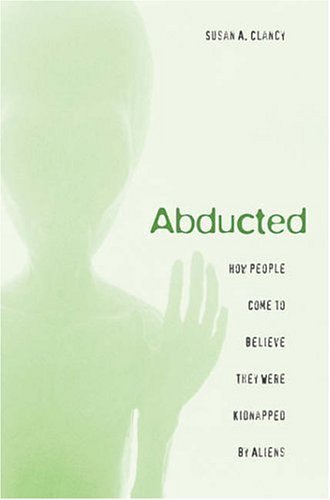What do you think?
Rate this book


191 pages, Hardcover
First published October 1, 2005
I am arguing that alien-abduction memories are best understood as resulting from a blend of fantasy-proneness, memory distortion, culturally available scripts, sleep hallucinations, and scientific illiteracy, aided and abetted by the suggestions and reinforcement of hypnotherapy. (p. 138).
But this analysis is still insufficient for an understanding of the phenomenon. As the abductees themselves would say, “If you’re telling me it didn’t happen to me, that I made it up, why in God’s name would I want to?” (p. 138).
The best part of science, the thing that makes it work, is the fact that it is impartial and unbiased. It doesn’t care what you want; it cares only about the truth. Science is a process of inquiry aimed at building knowledge—testable knowledge that is constantly open to rejection. I had to acknowledge the truth that was revealed in the evidence: the abductees had derived profound benefits from their dreadful experiences. I was struck by the fact that all of the subjects, without exception, said that they felt “changed” because of their experiences, that “they were better people,” that “life improved” after they were abducted. (p. 148).
Belief in alien abduction is not just bad science. It’s not just an explanation for misfortune and a way to avoid taking responsibility for personal problems. For many people, belief in alien abduction gratifies spiritual hungers. It reassures them about their place in the universe and their own significance....We live in an age of science—of data, facts, experiments, and experts. The fact that pseudo-scientific beliefs are proliferating more than ever clearly indicates that, for many people, science just isn’t working. It is failing to meet their needs, concerns, and longings. (p. 150).